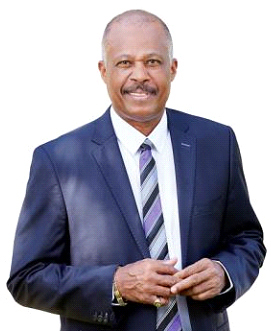(Jamaica Gleaner) – The establishment of an offshore school of medicine at the St Augustine Campus in Trinidad and Tobago is among several initiatives The University of the West Indies (UWI) will be implementing as it aggressively pursues funding on the capital market.
Vice chancellor of The UWI, Professor Sir Hilary Beckles, said other campuses, including Mona, have also been identified for profit projects, as The UWI pursues global revenues.
As the university moves to generate increased revenues, it is hoping to capitalise on recent global rankings which place it as the top university in the Caribbean and among the top tertiary institutions worldwide. A 10-point plan will be used to guide this process up to 2025.
“We are ready to take this bold historic step, of The UWI, its brand, its reputation going to the market, to the capital market to raise money for capital investment and these are for profit investments that will bring a revenue stream that is sustainable into the university, reducing our dependence on Government. The university will be entrepreneurial in the pursuit of profit. This is the transition that we have already taken and we are on the cusp of delivering upon this,” he said.
Beckles was speaking during the meeting of the University Council, the highest decision-making body of the 73-year-old regional institution. Despite intense opposition from both the Jamaican and the Trinidadian governments, he was able to retain his post as the executive head of The UWI for another five years.
“This is how we are looking at the commercial future of our university, by commercialising our brand, by commercialising our intellectual property, by commercialising our reputation on a global scale, and to do this, we have reached out to the partners of the world, the donors of the world who are funders of higher education, the institutions of the world who facilitate these kinds of partnership, who enable universities to fulfil their potential,” he said.
Beckles proposed a new funding model, which would see students contributing to 15 per cent of the university’s budget, while the Government would fund 50 per cent. Alumni, private sector, the university’s entrepreneurial activities and international development partners would be other sources of funding. Currently, students in most faculties pay 20 per cent of the tuition, while Government pays 80 per cent.
The UWI has already started to forge partnerships with international institutions and global financiers as part of a general plan to transform the university into a financially sustainable enterprise. Its new financial model includes transitioning into a global campus and creating a one UWI initiative, which will see the duplication of programmes across regional campuses becoming less of an issue.
“No student should be able to graduate from The University of the West Indies unless they have received some teaching from another campus. We now have the technology to do that,” Beckles said.
“The UWI is now equipped and ready to go to the market, because the research shows that at this moment, our brand is hot and this is recognised regionally and globally,” he said.

